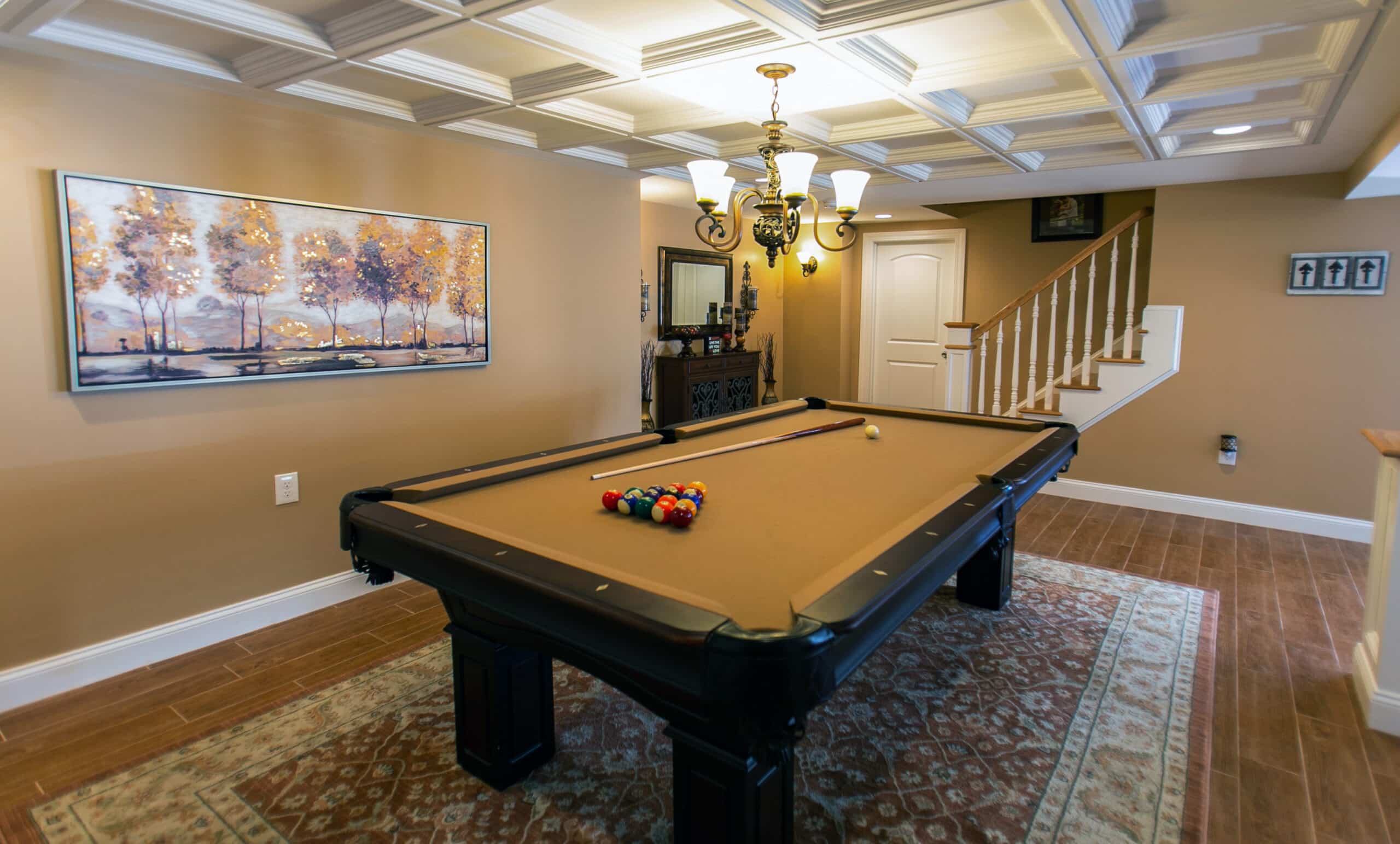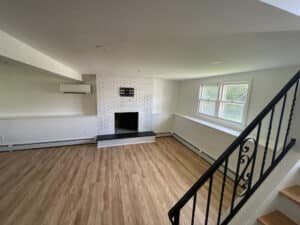
Here’s How to Keep Your Basement Dry in Rhode Island
How to Keep Your Basement Dry in Rhode Island
It’s been a wet few weeks here in Rhode Island. Very wet. Too wet. And with the heavy rains and how-bout-this-weather talk comes the pervasive issue of flooded and damp basements. If you’re a homeowner in Rhode Island and have a basement, then you’re probably all too familiar with this. Even if you’re not making the most of your basement space, damp and flooded basements aren’t just petty annoyances; they can damage your home, which leads to expensive repairs, reduced property value, and even health issues. So as you’re waiting for sunnier days (and dreading going downstairs), here are some strategies on how to keep your basement dry in Rhode Island.

Sealing Cracks in Your Foundation
It happens in every home, especially with the huge amount of historic houses we have in Rhode Island. Cracks start developing in old foundations, creating an entry point for water (and hopefully, no critters or creepy crawlies). It’s just a part of having a home in New England. But regularly checking your foundation for cracks and sealing them ASAP can help mitigate long-term damage and is a relatively inexpensive and quick fix. Left untreated, however, cracks in your foundation will grow, the water will flow, and as you step into your basement, you’ll be saying, “Oh no…”
Get Those Good Grades
It may not be something that’s in the front of your mind, but the area surrounding your home’s foundations plays a huge role in keeping your basement dry. Specifically, the grading. If the soil around your foundations slopes away from your house, then you’re off to a good start, and water will be less likely to find its way indoors. If, however, you happened to excavate part of your backyard for a new patio and relocated several cubic yards of soil to your side yard where you didn’t realize there was an imperceptible tilt to the ground that helps channel water towards your home–definitely not something this blog author did–then you might want to regrade that area. Don’t forget to check your gutters and downspouts too. Backed-up gutters will cause water to spill over to unintended areas (and create ice dams in the winter), and a poorly aligned downspout can do the same.
Let’s Give ‘Em Sumpin to Pump About
Sump pumps aren’t just a fun term to use, they are essential in keeping basements dry, too, especially when we have heavy rain or large amounts of snowmelt. A sump pump typically sits in a large basin that extends below the floor of your basement and is able to sense when water levels get too high. Once a certain threshold is reached, the sump pump pumps excess water out and away from your home into a designated discharge area. You’ll want an experienced contractor like Red House Design Build to install a sump pump for you, and like any home equipment, it’ll need regular servicing too, but it’s a small price to pay for a dry basement.
Coatings, Sealants, Membranes, Oh My!
There’s a whole slew of products out there that you can invest in to help keep the basement wets away. Broadly speaking, these fall into interior and exterior waterproofing strategies. Interior waterproofing involves the application of coatings or sealants to your basement walls and floors. Exterior waterproofing is a bit more involved but worth the trouble if your basement looks more like a swimming pool after a hard rain. By excavating soil from around your foundations, waterproof barriers can then be installed, which divert water away from your home. But again, be sure that the grading slopes away from your house. I cannot stress this enough.

Hopefully, this article didn’t rain on your parade too much and has given you some strategies on how to keep your basement dry in Rhode Island. It just requires a little diligence, some proactive measures, and perhaps common sense. Regular maintenance and inspections will go a long way in preventing the dreaded dank basements we all hear about. And recognizing when it’s time to call a professional is a major part of averting long-term damage, too. If you’re looking for ways to permanently dehumidify your basement, give Red House a call today!
- Category :
- Type :

